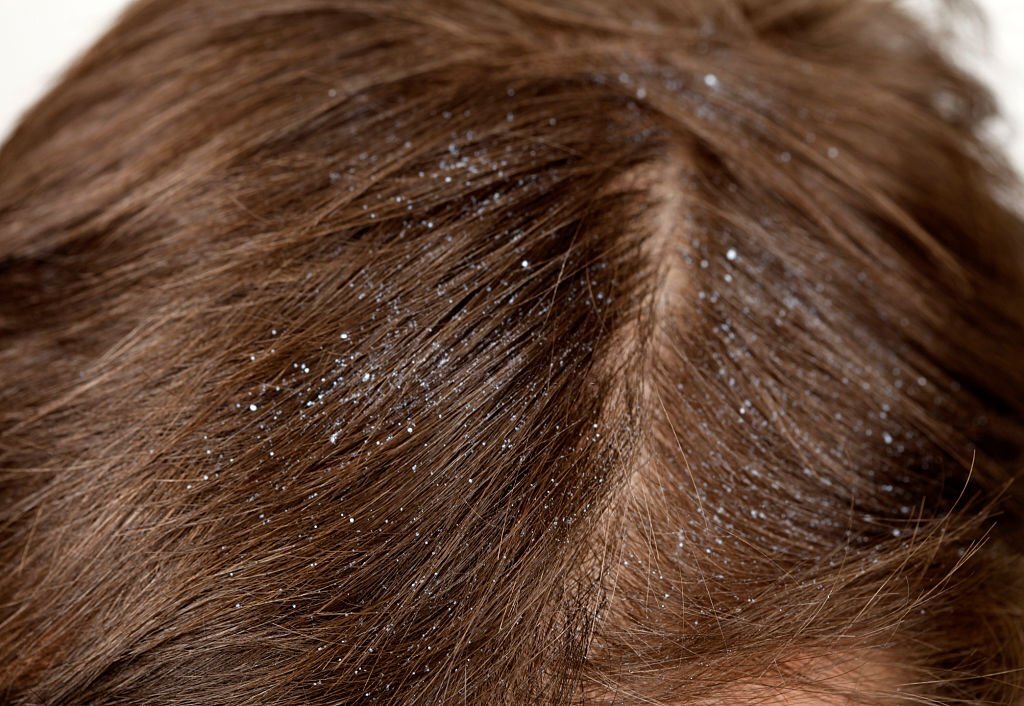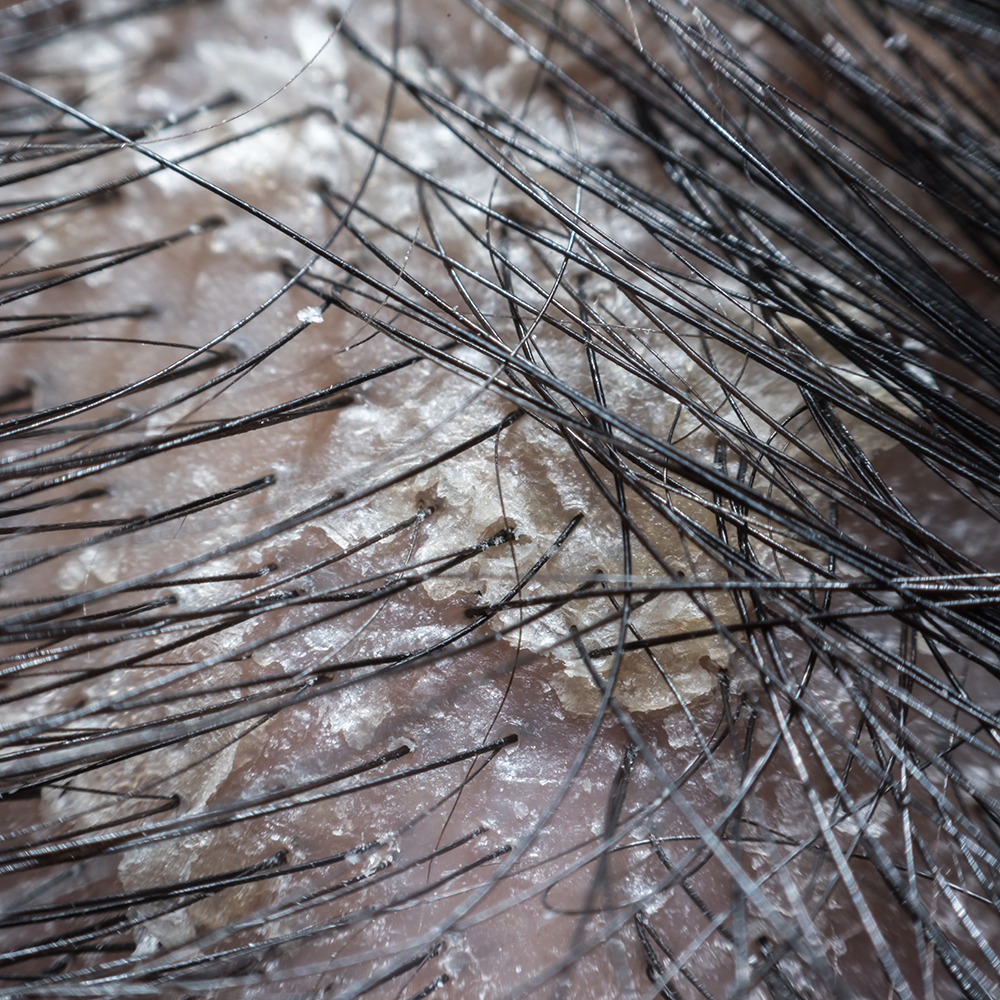Overview
From your scalp to your feet, groin and other parts of your body, fungal infections are an itchy, irritating annoyance that can cause a variety of symptoms.
Scalp fungus, also known as scalp ringworm or tinea capitis, is a common fungal infection that develops on your scalp and in your hair shafts. Like other fungal infections, it’s contagious and often develops in young children.
You may notice a variety of symptoms if you develop a scalp fungal infection, including itching, redness, scaly skin and even hair loss.
Although scalp fungus can be annoying, it’s almost always treatable. It’s important to take action quickly if you develop a fungal infection on your scalp to prevent it from spreading to other areas of your body and become more severe.
Below, we’ve explained what scalp fungus is and the factors that cause it to develop. We’ve also explained the effects scalp fungal infections can have on your hair, as well as the most effective options for treating and preventing this type of fungal infection.


What Is Scalp Fungus?
Scalp fungus, or tinea capitis, is a type of fungal infection that affects your skin and hair. As with other common fungal infections, it develops when a specific type of fungus starts to grow on the outermost layer of your skin.
A similar type of infection called tinea barbae, which develops on your face, chin and neck, can affect your beard area.
Scalp fungus is often referred to as scalp ringworm. Despite its name, there’s no worm involved — instead, this type of infection is caused entirely by contagious fungi.


According to the CDC, about 40 different species of fungi may cause tinea infections that affect your scalp, groin, feet and other parts of your body. Scalp fungal infections are often caused by the microsporum and trichophyton fungal genera.
Scalp fungus can cause a variety of symptoms, including:
Dry, scaly areas of skin
Redness
Itching
Dandruff
Hair loss
The severity of these symptoms can vary depending on a number of factors. Sometimes, scalp fungus causes gray, scaly patches of skin to develop across your scalp with a small amount of noticeable hair loss.
In more severe cases, a scalp fungal infection can cause inflammation, lesions and secondary infection with bacteria.
What Causes Scalp Fungus?
Like other fungal infections, scalp fungus develops when contagious fungi are transmitted onto your scalp and hair from other people, animals or objects.
Fungi can be found in almost every environment. When you come into contact with a fungus, it can spread onto your skin, causing an infection to develop. Often, it only takes a moment for a fungus to make its way onto your body and start growing.
Common sources of this type of fungal infection include:
People. It’s possible to develop scalp fungus after contact with other people with fungal infections. The fungi that cause this type of infection can spread onto your hands from other people, then move to your head when you touch your scalp or hair.
Animals. Ringworm infections are common in animals, including dogs, cats and many farm animals. Many fungal infections are especially common in younger animals, such as puppies and kittens.
Shared items. Items that are shared with other people, such as towels, clothing, combs, hairbrushes and other personal care products, can spread fungal infections.
The environment. Certain areas, such as damp surfaces in communal locker rooms or showers, are breeding grounds for the fungi that cause scalp ringworm and many other fungal infections.
Although scalp ringworm can affect anyone, it’s most common in children and people with weak immune systems. Like other fungal infections, scalp fungus tends to spread more often during the warmer periods of the year.
Scalp Fungus and Hair Loss
Scalp fungal infections often cause hair loss. If you have a fungal infection on your scalp, you may experience patchy hair loss, with small, round bald patches forming in certain parts of your scalp.
You may notice that the hair in affected areas of your scalp becomes brittle and breaks off from its roots easily. In some cases, scalp fungus can cause patches of small black dots to develop as strands of hair literally break off at your scalp.
It’s important to understand that hair loss caused by a fungal infection is very different from the hair loss caused by male pattern baldness. Although fungal infections can cause hair loss, they don’t have any effect on DHT or other hormones.
Although most of the hair loss associated with scalp fungus is temporary, scalp fungal infections that cause inflammation (often referred to as kerion) can cause scar tissue to develop. This may lead to a type of permanent hair loss called scarring alopecia.
Because of the risk of permanent hair loss, it’s important to take action quickly if you notice any of the symptoms of a scalp fungal infection.
Nirav SKIN & HAIR CLINIC
Address : A-66, Rangavadhut Society, Ishwarkrupa Rd, Near Bombay Market, Matawadi, Surat, Gujarat 395006.
Monday to saturday morning 9:30am to 1 pm
evening 5pm to 8.30 pm
Address : 114, Mildstone canal point, Near INS hospital, Khatodra Wadi, Surat, Gujarat 395002.
Monday ,Wednesday, Friday 2pm to 3.30pm
Phone : 098799 05850
Email : [email protected]
© Copyright 2022 Nirav Skin & Hair Clinic. All Rights Reserved Designed and maintained by Creative Kshetra

